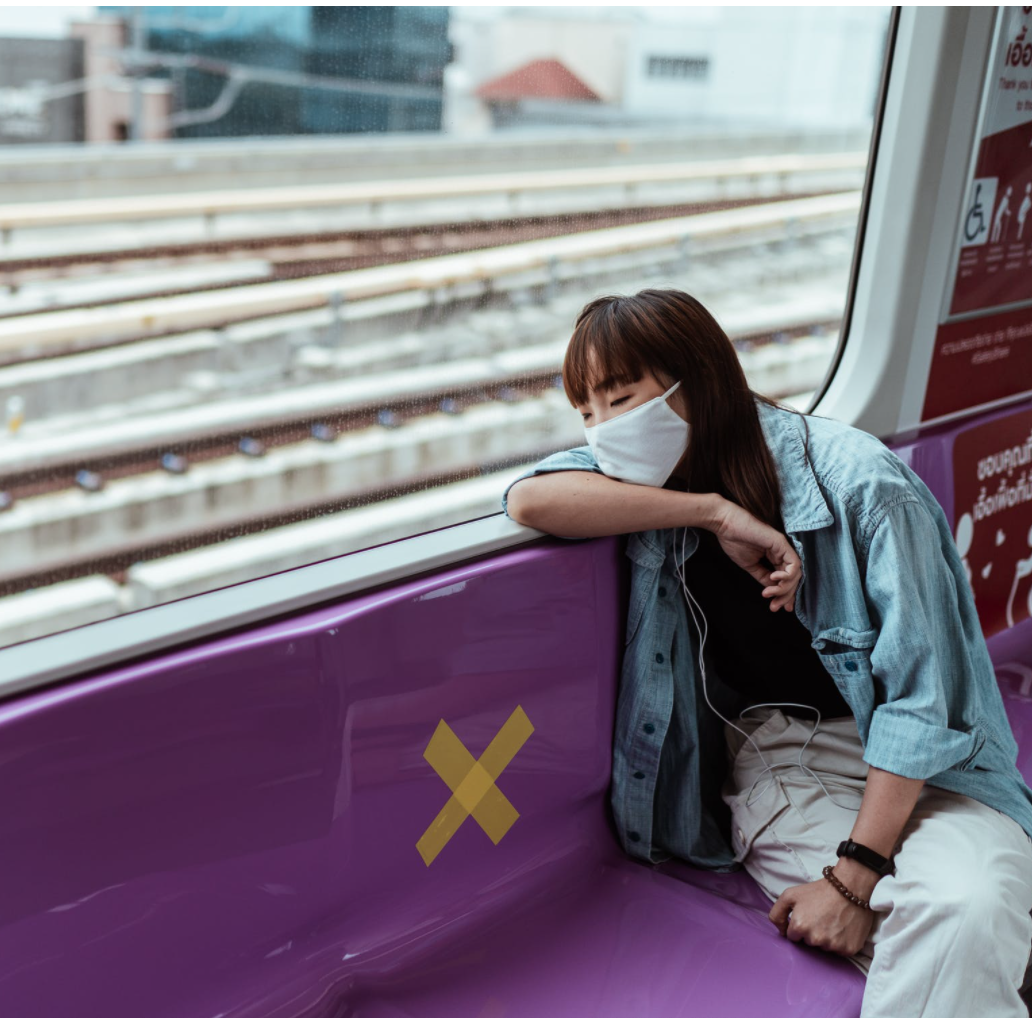The Centers for Disease Control is recommending that employers pay their employees to drive alone to work to stop the spread of COVID-19 — a move that threatens to accelerate the perennially-deadly traffic violence pandemic, not to mention climate change.
The bombshell is buried in the CDC's latest recommendations for re-opening office buildings:
For employees who commute to work using public transportation or ride sharing, consider offering ... employees incentives to use forms of transportation that minimize close contact with others, such as offering reimbursement for parking for commuting to work alone or single-occupancy rides.
The guideline is especially troubling when compared with the World Health Organization's workplace safety recommendations, which most nations outside the U.S. consider the gold standard for public health advisement. Those absolutely do not recommend that employers provide structural incentives for car commuting — ostensibly because the United Nations agency recognizes that driving itself poses a major public health risk. Earlier this year, the U.S. was famously the only voting member of the WHO not to sign a global pact to halve roadway deaths by 2030.
The CDC's puzzling recommendation is also at odds with how countries around the world are already stopping the spread of the virus in their transportation networks. There's new evidence that the largest, most transit-rich cities on Earth are keeping infection rates low even while ridership remains high — not by shifting riders to cars, but by successfully promoting widespread mask use on buses and trains.
"The guidance from the CDC runs counter to the evidence emerging from Seoul, Beijing, and other large transit cities where millions of people continue to ride trains and buses every day and transmission rates remain very low," said Ben Fried of TransitCenter.
Both the Korean and Chinese capitals were averaging over four million daily transit trips by early April — and those rates rose in the weeks that followed, even as case counts remained low. Japan, which has the third highest rate of transit ridership in the world, found no infection events linked to commuter trains after performing rigorous contact tracing on almost 17,000 confirmed cases.
“An infected individual can infect others in such an environment, but it must be rare,” said Hitoshi Oshitani, a virologist and public health expert at Tohoku University, recently told Science Magazine. He also added Japan would likely have seen large outbreaks traced to trains if airborne transmission of the virus by people wearing masks was even possible.
But the CDC's recommendation isn't just troubling because it won't have much impact on the spread of the coronavirus — it's troubling because it incentivizes driving, which kills tens of thousands of Americans each year, and accelerates a climate catastrophe that kills hundreds of thousands worldwide.
As keen-eyed city leaders pointed out early in the pandemic, many American cities simply aren't designed to handle an additional influx of car traffic — and incentivizing Americans to drive as a pandemic response could be deadly for road users and the economy, especially if crashes increase.
"If San Francisco retreats in a fear-based way to private cars, the city dies with that, including the economy," said San Francisco MTA director Jeffrey Tumlin in April. "Why? Because we can’t move more cars. That’s a fundamental geometrical limit. We can’t move more cars in the space we have."
Instead, San Francisco is joining forward-thinking cities by making transit safer, as well as improving alternatives to transit and driving. Staggering worker schedules to reduce peak transit demand, running frequent, socially-distant, private shuttles to large workplaces like factories, and, of course, addressing the many barriers to safe biking and walking can all help.
But until the CDC issues better guidelines on how our transportation system itself can be modified to stop the spread, the onus is on cities to take the agency's single worst recommendation with a grain of salt. And some of them are already doing just that.
"The federal government gets a heavy sigh from me," said New York City Mayor Bill de Blasio. "This is the city that’s most reliant on mass transit, and the future is mass transit. There’s no question we must move away from the automobile. ... We have an obligation to provide people with [safe public transit] they can believe in, and that’s what we’re working on literally as we speak."
That said, he also added that he anticipated a surge in driving for the next few months, and offered no counter-incentive to the one recommended by the CDC.
— with Gersh Kuntzman






